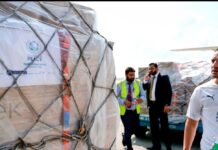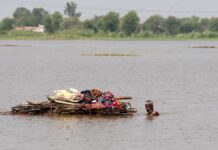Urinary tract infections and reproductive complications in part due to lack of clean water, sanitation and hygiene affecting women and girls
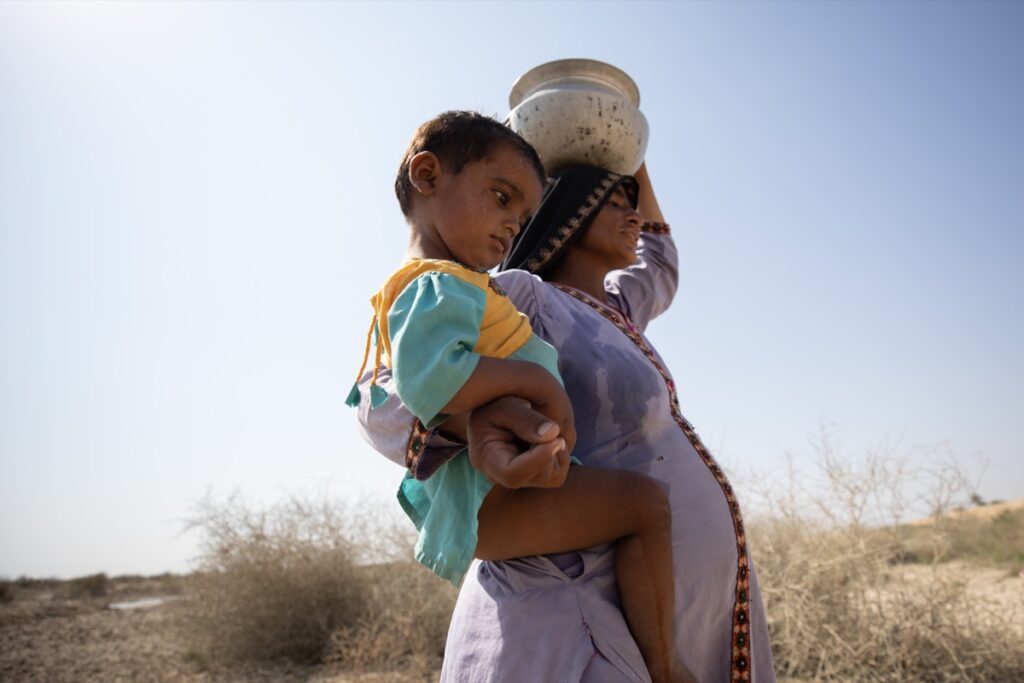
Women and girls in Pakistan are struggling right now with urinary tract infections (UTIs), reproductive issues and other health complications in the wake of the devastating floods that submerged one third of the country earlier this year.
Stagnant water, unhygienic conditions, poor sanitation and a lack of access to medical facilities batter their health, with one woman with an underlying health condition advised by doctors to have a hysterectomy, and another fearing for the life of her unborn child – WaterAid reports.
Three months on, the development organisation visited communities in the Badin and Dadu districts of Sindh province and found women and girls experiencing trauma and anxiety, with some fearful of menstruating due to a lack of privacy and sufficient access to clean menstrual products or cloths. Some were having to resort to tearing their “dupatta” (scarves) and other clothing to manage their periods.
Tahmina, a local nurse working with women and girls from camps in Dadu, says that most of the women she meets complain of abdominal cramps, excessive bleeding and unusual discharge. She has seen symptoms associated with UTIs “significantly increase” and estimates that around “70 per cent” of women she meets are suffering from the condition.
She said: “Unhygienic conditions, using of the same cloth for longer periods, holding urine for longer periods, using contaminated water for drinking and washing purposes and lack of handwashing are contributing a lot to this. Due to trauma and anxiety, women are in shock.”
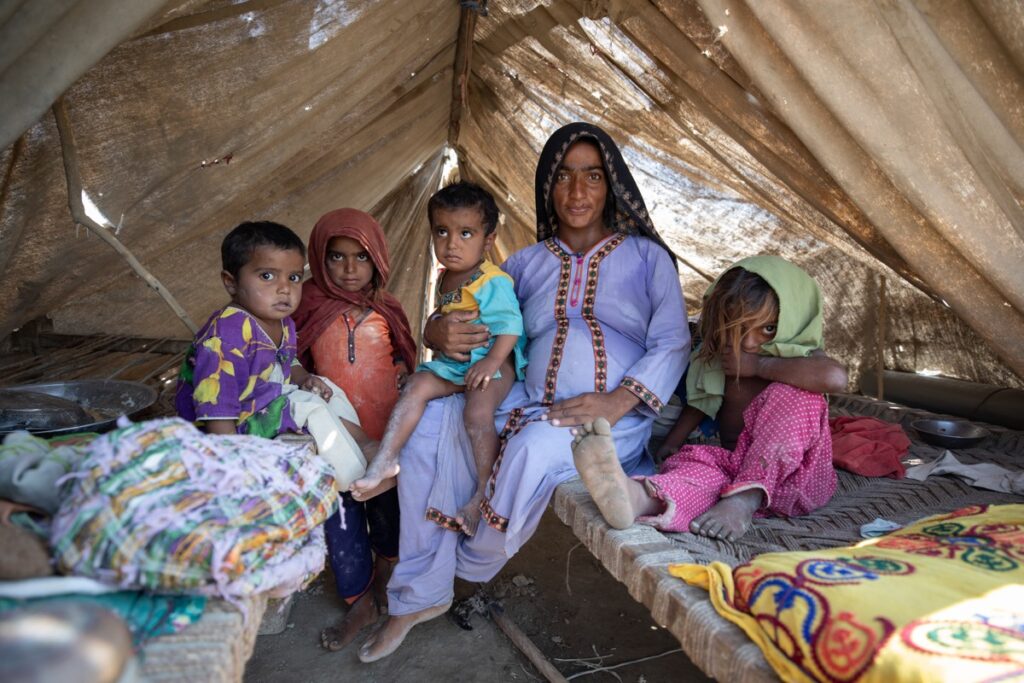
Rubina was six months pregnant when she was forced to flee her home in the village of Bachal Laghari, Johi in Dadu.
Three months on and full-term, the 32-year-old now lives with her husband and four daughters in a makeshift camp in the Flood Protection Bund in Johi city and fears for the health of her baby and children. She said: “Living in a tent is not a life that I saw for my child and I am not sure whether my child or I will be able to survive in such a critical situation.
“I am aware that the stagnant water will take more than three months to be absorbed by the soil, so I just get goose-bumps when I think of living here for the next four months. My family has lost everything, but we do not want to lose this baby.”
Rubina is one of the estimated 650,000 pregnant women in flood-affected areas of Pakistan who are in need of maternal health services to ensure safe pregnancy and childbirth. An estimated 8.2 million women living in the flood zone are thought to be of reproductive age.
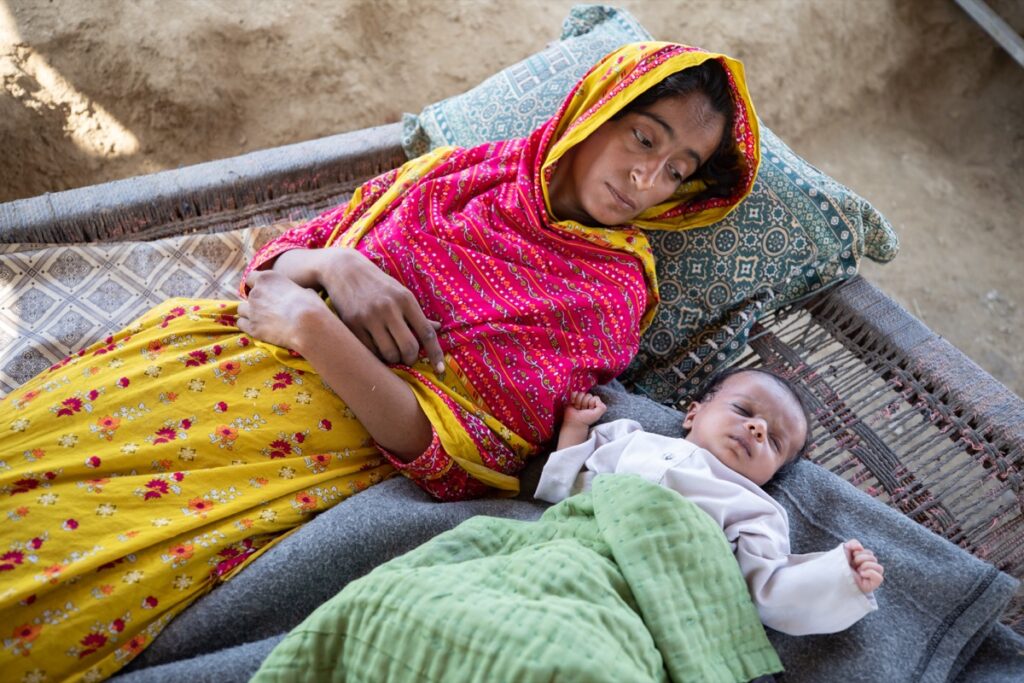
Women and girls are disproportionately affected by the impacts of climate change. With gender as one of the themes at COP27, WaterAid is calling on world leaders to channel more money towards water, sanitation and hygiene projects so that women and girls who are bearing the brunt of climate change can better cope with its impacts.
Raheema Panhwar, WaterAid Provincial Coordinator in Sindh, said: “The UN Secretary General, Antonio Guterres, declared at COP that ‘we’re on a highway to climate hell’. Well, women and girls in Pakistan are living that hell right now.
“Clean water, sanitation and hygiene promotion are essential for women and girls to stay disease free, go to school, earn a living and be more self-reliant. They cannot wait any longer for world leaders to act – the time is now.”
WaterAid is working around the clock in Sindh province to help thousands of families affected by the floods and to distribute hygiene kits with antibacterial soap, toothpaste and mosquito repellent. To donate to WaterAid Pakistan’s appeal go to www.wateraid.org



